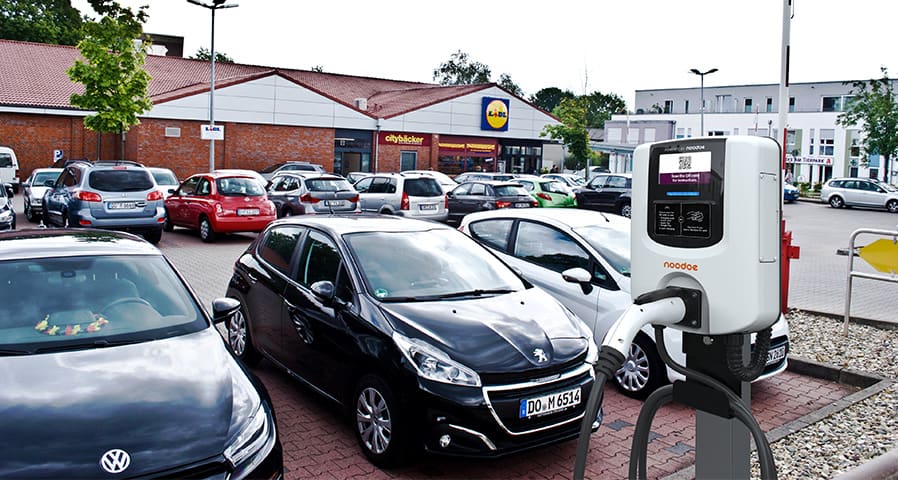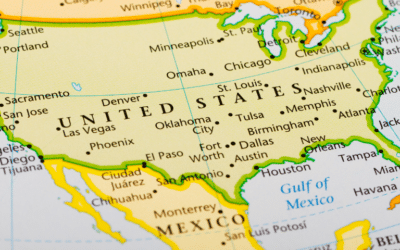In our first blog, 2023 Federal EV charging Infrastructure Rebates – Part 1, we covered federal EV charging infrastructure rebates, conditions set by the EPA, as well as grants and additional federal funding. Below we will cover infrastructure incentives at the state level, settlement funds, and utility incentives.
State-Level EV Charging Infrastructure Rebates
States are also offering financial incentives for businesses installing EV charging infrastructure. These state level rebate programs include,
- The California Energy Commission’s Clean Transportation Program is investing $384 million in zero-emission EV infrastructure. The project is working with other investors to ensure low-income communities are not left out.
- The Denver metro area and the Colorado Energy Office is funding up to 80% of EV charging infrastructure costs for fleet, dual-port, and Level 3 stations.
- The Alternative Fuels Infrastructure Grant (AFIG) is a program in Pennsylvania funded by gross tax rebates from utility companies. Dispersing around $5 million in annual grants, the program is covering up to 50% of the cost to purchase and install EV charging infrastructure in public places. It is also helping to offset the cost of home EV chargers.
- The Workplace Electric Vehicle Charging Funding Assistance Program is working with nonprofits, businesses, and governmental agencies by offering rebates and other financial incentives that can cover up to 50% of purchasing and installation costs.
Settlement Funds as Rebates
Auto manufacturer settlement funds are being used as EV charging infrastructure rebates at the state level. An example is the Volkswagen settlement. Here’s a look at how a few states are applying these funds.
- Florida is allocating $8.6 million to use to install 74 DC fast chargers across the state
- Idaho is also installing DC fast chargers using money from the settlement funds
- Maine is expanding its EV charging infrastructure across the state
- Minnesota is using around $2.5 million to install DC fast chargers along the highways and interstate corridors.
- Ohio is using $3 million in settlement funds to install public Level 2 charging stations in 26 counties and in state parks.
Additional settlement funds being used to advance EV charging infrastructure include the Schmidt Family Foundation in California. Duke Energy in North Carolina is supplying up to $300,000 in grants for the installation of electric buses.
Utility Rebates
Several utility companies across the United States are offering rebates to help support EV charging infrastructure. Some examples are,
- Tucson Electric Power, in Arizona, is offering rebates to businesses, multi-family dwellings, and non-profits to install EV charging stations. Customers in low-income areas may qualify for higher rebates.
- Several California utility companies including Pacific Gas & Electric are implementing programs to advance EV charging infrastructure across the state, including in low-income neighborhoods.
- Hawaii Energy is offering rebates for EV charging stations deployed at commercial and multi-family dwelling complexes
- Iowa’s Alliant Energy offers up to $500 in rebates for Level 2 chargers and $250 for units that are non-network connected.
- Roanoke Electric Cooperative, located in North Carolina, is introducing a program that provides homeowners with an EV charger that is maintained and owned by the utility.
- Austin Energy is offering rebates of 50% to go towards the purchase and installation of Level 2 charging stations.
Utility companies can also work with state regulators to install charging stations in Oklahoma, Missouri, and Illinois.
Have you read, Examining Utility EV Charger Rebates? We take an in-depth look at utility EV charger incentives from across the country by customer class. There are maps highlighting the rebates at a state level.
Finding Federal EV Charging Infrastructure Rebates with Apogee Charging Solutions
The above article is only a peek into the available rebates offered at the federal and state levels. New rebate programs are constantly being introduced, finding, and applying for these financial incentives is time-consuming.
Be sure to read our first blog, 2023 Federal EV charging Infrastructure Rebates – Part 1, where we covered federal EV charging infrastructure rebates, conditions set by the EPA, as well as grants and additional federal funding.
When you are ready to start your EV charging infrastructure project and want to take advantage of all available rebates, contact Incentive Rebate360 today by calling 480-653-8180, email info@incentiverebate360.com, or schedule a call that fits your needs by clicking the button below.






0 Comments